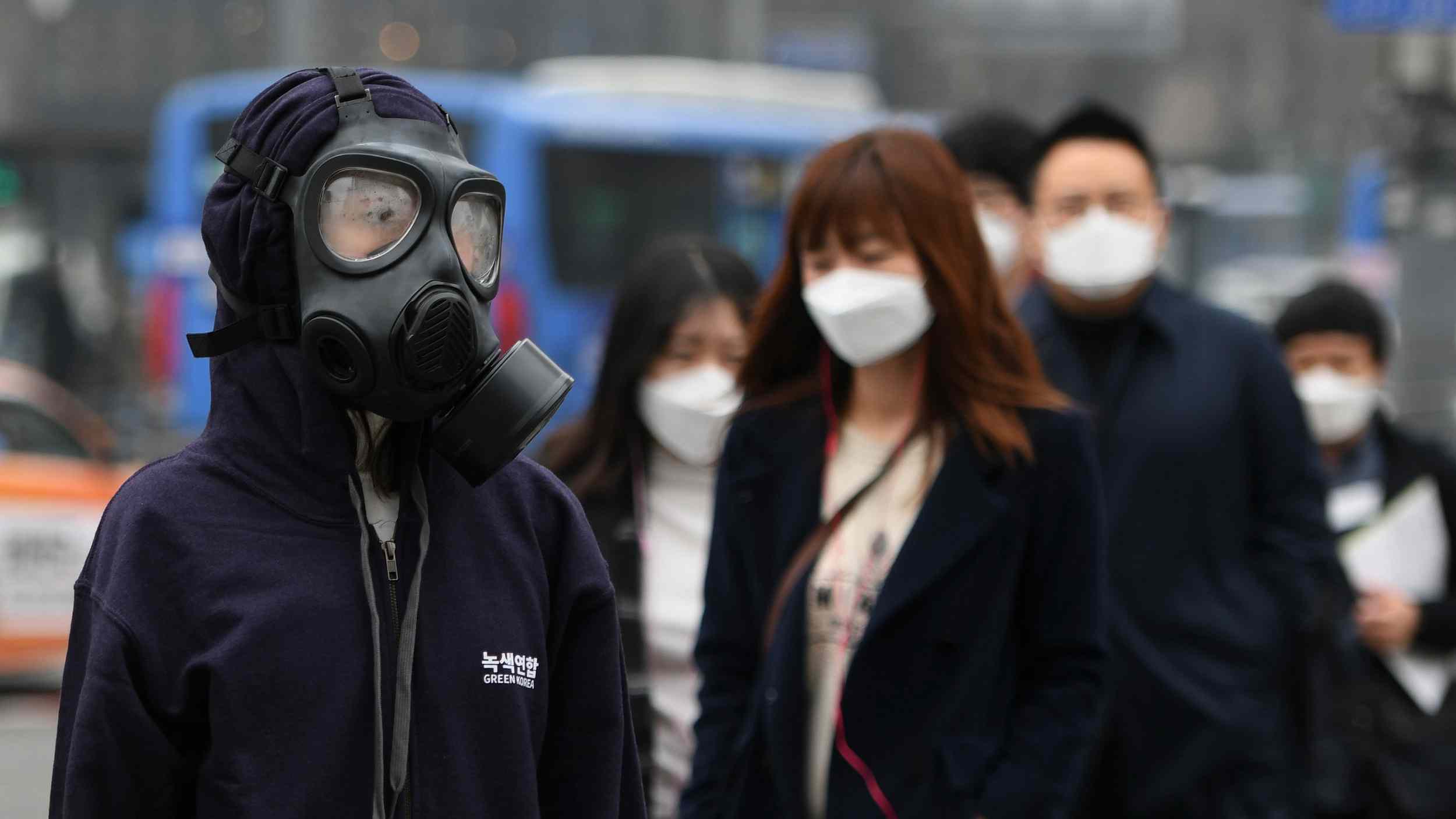
Environment
15:27, 08-Mar-2019
South Korea seeks rain project with China to clear air pollution
Alok Gupta

South Korea has sought China's technical assistance in artificial rain to combat the air pollution currently engulfing its capital Seoul. The country is the latest entrant to the league of Asian nations trying to use artificial showers to ensure a clear sky.
Proposing a joint project with China, South Korean President Moon Jae-in said in a meeting with government officials that Beijing is "much more advanced" in rain-making technologies that could help the country wipe out air pollution, Associated Press reported.
India and Thailand recently attempted two artificial rain methods – cloud seeding and sprinkling water using helicopters – to clear smog by controlling extremely fine particles in the air. Toxic air has become a contentious issue in a large number of South Asian cities.
Vehicular emissions, coal-fired power plants, and biomass burning were cited as significant reasons leading to a dramatic rise in air pollution in these cities, the latest report released Tuesday by Air Visual and Greenpeace maintained.
In Seoul, extremely fine particles in the air, known as PM2.5, ranged from 162 to 237 per cubic meter, nearly five to 10 times the World Health Organization's (WHO) recommended safe limit. These particles, the diameter of which is smaller than a strand of hair, can enter the lungs and cause severe illness.
A WHO-led study estimated nearly seven million premature deaths are due to air pollution every year, which also causes a loss of millions of dollars.
According to Yann Boquillod, director of air quality monitoring at IQAir, an atmospheric inversion and pollutants from the adjoining regions and local sources were a major contributing factor behind Seoul's toxic air quality. "In last few days, local pollution sources further aggravated the situation," he said.
Poor air quality has forced residents to use face masks and restrict their outdoor activities.

South Korea is facing severe air pollution for the last five days. Screenshot of Air Visual shows toxic air rotating in the region.
South Korea is facing severe air pollution for the last five days. Screenshot of Air Visual shows toxic air rotating in the region.
From Bangkok to Seoul – cloud seeding for a clearer sky
The Korea Meteorological Administration (KMA) and the Ministry of Environment in a joint operation attempted to ensure artificial rains through cloud seeding earlier this year.
Cloud seeding uses a substance like silver iodide to align water molecules into a crystalline structure, resulting in rain.
The artificial rain experiment, carried out in January over the country's western waters to reduce fine dust failed, Xinhua reported. The joint collaboration had planned to conduct 14 such experiments.
Inability to generate rains prompted the country's policymakers to seek China's help. In the last two years, India and Thailand also attempted artificial rains in a bid to control choking air pollution.
Last February, Thai authorities authorized the Department of Royal Rainmaking and Agricultural Aviation in a cloud seeding operation to try to induce rain. But it was called off after several attempts failed.
New Delhi tried a more straightforward approach deploying helicopters to sprinkle water as a method of controlling the smog in New Delhi in November 2017. However, with PM 2.5 levels crossing 700 micrograms per cubic meter, the choppers were unable to take off due to reduced visibility.
Chinese foreign ministry spokesman Lu Kang said Thursday that regional cooperation between China and South Korea to prevent and control air pollution would be a useful measure to resolve the issue.
(Top Image: A South Korean environmental activist (L) wears a gas mask to protest the government's inaction over rising air pollution in Seoul, March 6, 2019. /VCG Photo)

SITEMAP
Copyright © 2018 CGTN. Beijing ICP prepared NO.16065310-3
Copyright © 2018 CGTN. Beijing ICP prepared NO.16065310-3